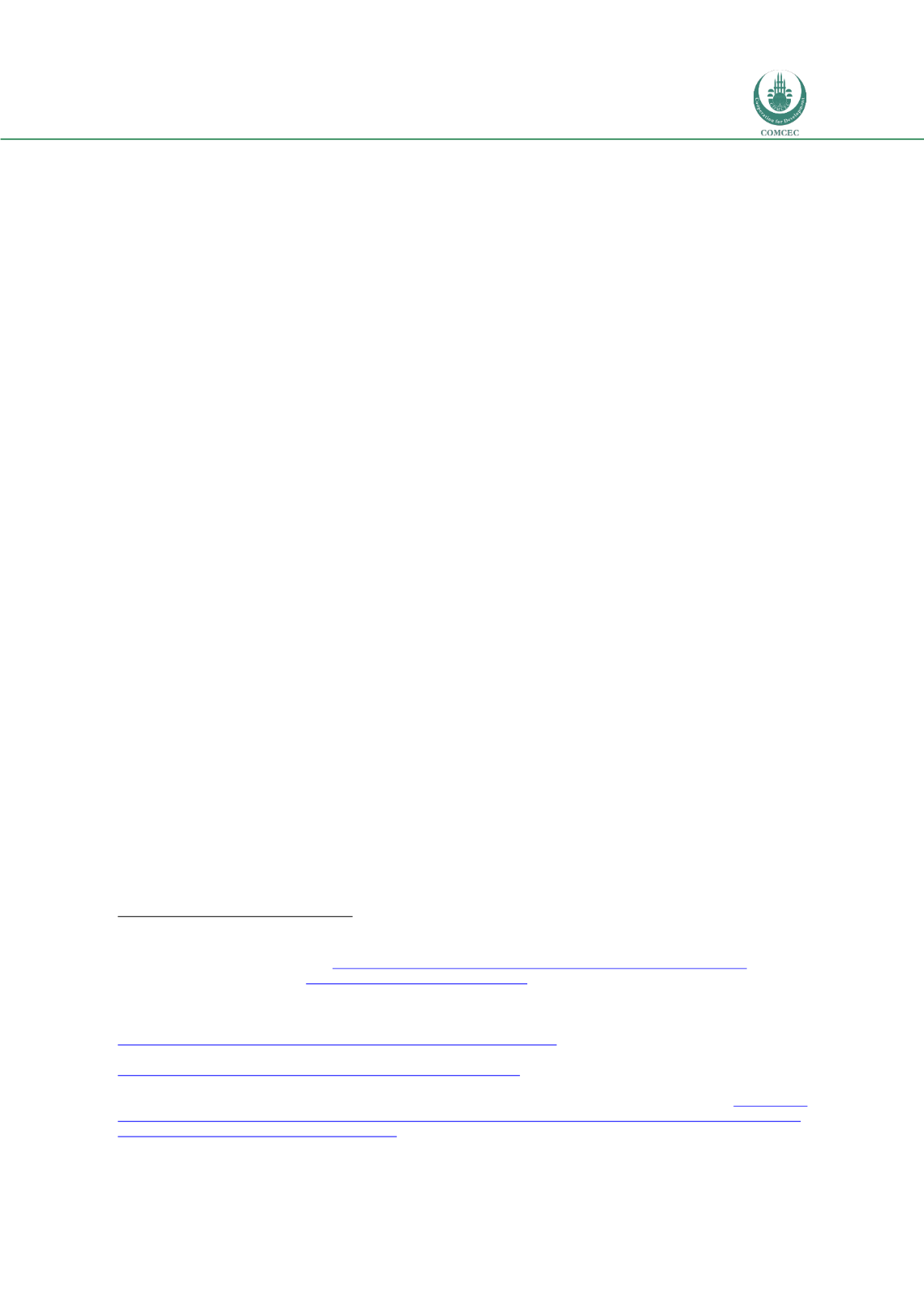

Forced Migration in the OIC Member Countries:
Policy Framework Adopted by Host Countries
137
3.4.3.
Poverty Alleviation Efforts
As well as being able to access healthcare and education services on the same terms as
nationals, refugees also receive various types of support from the Government of Uganda and
humanitarian agencies such as land and basic supplies for shelter and cultivating crops, and
food assistance. Refugees in Uganda’s settlement receive food rations primarily from the
World Food Programme (WFP) and other humanitarian agencies, with WFP offering the
options of cash assistance or food rations to some refugees who have been in Uganda for a
number of years. At the end of 2015, WFP’s cash transfer program was available in six
settlements, and about 35,000 refugees (approximately 10 percent of those receiving food
assistance from WFP) had opted for cash transfers.
38
But while Ugandan refugee policy has
sought to promote refugee self-reliance, very few achieve this goal in practice with most living
in poverty.
Uganda has committed to several sets of development benchmarks such as the Sustainable
Development Goals (SDGs), which include targets such as employment and decent work for all
and equal access to quality education by 2030;
39
the preceding Millennium Development Goals
(MDGs); and the Education for All Framework (2000), which set out benchmarks to achieve
universal free primary education, expanded early childhood education, gender equality in
education, and 50 percent improvement in adult literacy by 2015.
40
Uganda has also introduced several policies over the years that seek to integrate refugee
services into government infrastructure and services, and thus avoid long-term parallel social
service systems and uneven allocation of resources between refugees and host communities.
One example is the government’s requirement that donors invest 30 percent of all funds spent
on refugee assistance to benefit host communities. Currently, the two key policies that pertain
to refugee livelihoods and integrated service delivery are the Settlement Transformative
Agenda and UNHCR’s ReHoPE strategy, which focus on offering livelihoods assistance to both
refugee and host communities, as part of Uganda’s National Development Plan:
Settlement Transformative Agenda (STA).
The goals of Uganda’s Settlement
Transformative Agenda (STA) include providing refugees and host communities with
sustainable livelihood opportunities; promoting effective land management practices and
protecting the surrounding environment; fostering social cohesion and rule of law; and
improving community infrastructure in line with local government plans.
41
ReHoPE Strategy.
The UN’s Refugee and Host Population Empowerment (ReHoPE)
strategy aims to promote sustainable livelihoods (by focusing on modern agronomic
38
This is offered in collaboration with OPM and UNHCR, and funded by Canada, the European Commission, France, Ireland,
the United Kingdom, and the United States in 2015. Lydia Wamala, “In Uganda, WFP and Donors Give Refugees More
Control And Choice,” March 14, 2016
, https://www.wfp.org/stories/uganda-thanks-donors-wfp-food-assistance ;and WFP,
“Uganda,” accessed July 18, 2016
, http://www.wfp.org/countries/uganda .39
See, for example, Goal 4 of the Sustainable Development Goals (SDGs)—“Ensure inclusive and quality education for all
and promote lifelong learning,”—and Goal 8 – “Promote inclusive and sustainable economic growth, employment and
decent work for all”. United Nations, “Sustainable Development Goals,” accessed May 23, 2016,
http://www.un.org/sustainabledevelopment/sustainable-development-goals/ .40
UNESCO,
The Dakar Framework for Action. Education for All: Meeting our Collective Commitments
(Paris: UNESCO, 2000),
http://www.unesco.at/bildung/basisdokumente/dakar_aktionsplan.pdf41
World Bank, “Combined Project Information Documents/Integrated Safeguards Data Sheets: AFCC2/RI-Regional
Operation on Development Response to Displacement in the Horn (P152822),” June 17, 2015,
http://www- wds.worldbank.org/external/default/WDSContentServer/WDSP/AFR/2015/12/21/090224b083fbf9d4/1_0/Rendered/P DF/Concept0Projec0n0the0Horn000P152822.pdf ;and OPM, “Settlement Transformation Agenda,” presentation delivered
on September 22, 2015.
















